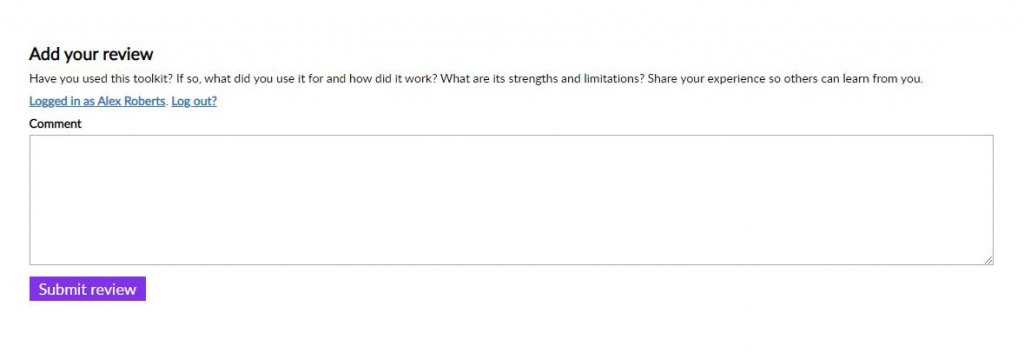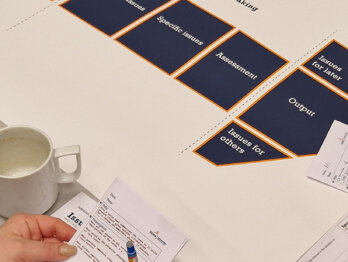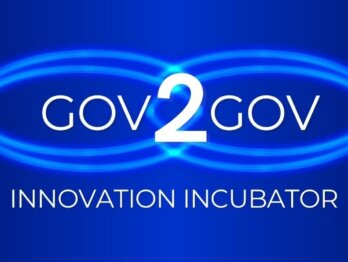Enhancing the Toolkit Navigator: Amplifying the voice of users

Which toolkits or guidance about tools have you found useful in helping you apply a new or different method or approach to your work? We are seeking your help in enhancing the OPSI Toolkit Navigator , so that more public servants and practitioners can benefit from the existing resources and guidance.
OPSI’s Toolkit Navigator
The OECD is a natural platform to aggregate and help navigate the numerous resources that have sprung up to help people, including public servants, discover and apply new methods, techniques and approaches. That’s partly why we at OPSI developed the Toolkit Navigator. It’s now been over a year since its launch and we think it’s time to see what more we can do to build upon it.
When we were creating the Toolkit Navigator, one of the things we knew from our research and our conversations was that the more we could contextualise the different tools and guidance that existed, the easier and better it would be for people to discover whether a tool might be right for them. When you are faced with more than a hundred different options, you need to be able to sift through them quickly to work out which will be most relevant.
So we knew we needed to reduce the search costs for people looking for what might help them in their situation, and to reduce the transaction costs as much as possible for adapting or translating it to their specific context.
The Toolkit Navigator was designed with this consideration front and centre. For instance, in terms of contextualisation for the Toolkit Navigator we:
- created toolkit types (e.g. case study library, manual/handbooks, playbook, etc.)
- categorised according to the relevant disciplines or practices (e.g. behavioural insights, design, futures and foresight, etc.)
- identified key features (e.g. is there an associated curriculum, an interactive diagnostic, or tips and tricks)
- suggested different purposes functions the tools are good for (e.g. building consensus, challenging assumptions or problem framing)
- grouped the guidance by whether it is extensive, intermediate or minimal
- suggested different user groups the materials might be most relevant to (e.g. managers, practitioners, policy makers, etc.).
We have tried to think about what will help people, whether they be expert practitioners or casual inquirers, discover and learn about different tools and methods and how to make the most of them in the myriad public sector contexts that exist around the world.
The importance of practitioner perspectives
We think we made a good start, but we know we can do better. As part of OPSI’s work with the European Commission through a Horizon 2020 grant, we are looking to further enhance the Toolkit Navigator.
One area that we think would really improve the Toolkit Navigator is to a greater inclusion of the voices of the users – the people who have had a go at using the different tools and methods. We want to hear from those of you who have played with, tested or fully adopted or adapted guidance on tools and methods. Your reviews can help others more quickly understand which tools (and toolkits) might be useful for them.
To add a review, you just need to log-in to the OPSI platform and go to the toolkits that are in the Navigator and add your review (there’s a box at the bottom of every toolkit page where you can add a review – e.g. see here or here).

If you don’t see a toolkit that you think should be there, then feel free to submit it so we can include it and expand what’s included in the Navigator.
No tool is perfect, and no toolkit will be either, so please aim to be constructive in your reviews. We are seeking reviews that will help others. The more you can point out what was useful for you, what worked for you, and for what sort of contexts you found the tool/guidance useful for, the better. Where a particular tool (or toolkit guidance) was not useful for you, or did not work, or did not work for your particular context, please be kind, and reflect on what it wasn’t for you, rather than harshly critiquing the guidance (that someone may have put a lot of time and effort in to).
These reviews will help us and practitioners get a better sense of what guidance works for people, when, and why, and will help us better support public sector innovators. We hope this will also help toolkit publishers know what they can improve upon for future versions of their toolkits.
We look forward to your reviews, and thank you for helping others navigate the tools that are out there.












